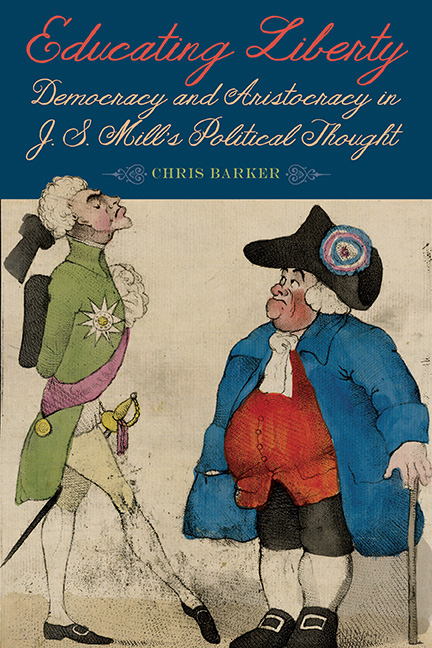Summary
The previous chapter argued that Mill's economic theory is best understood if we interpret him as subordinating even purely economic concerns to educational interest in building moral and practical reason. This chapter turns from industrial production to the production of knowledge. Here, Mill is similarly concerned with providing an opportunity for social scientists, among others, to advance liberty and ultimately happiness by producing knowledge, and to do so in a manner that includes rather than excludes public participation. The theory that I develop in this chapter rests on the permanent necessity of permitting more and less prepared citizens to participate in the process of creating knowledge and refining character. With this limitation on reform in mind, I find what many other critics of Mill do not, namely a consonance between the diversity embraced in On Liberty and the recognition of intellectual diversity and liberty in Mill's writings about Auguste Comte and about social science.
The advancement of the arts and sciences is at the core of Mill's educational theory. Mill would never write what the protocommunist Sylvain Maréchal wrote in 1796: “Let all the arts perish, if need be, provided true equality be attained.” For Mill, the type of equality that would be experienced without the advance of the arts and sciences would be an equality of necessity, not cultivated happiness, and narrowness of scope of action and options, not educated liberty. In an industrial age, the useful knowledge of the scientist is especially important for the well-being of the worker and citizen. As noted above, Mill thinks that the most transformative changes in society are women's liberation from legal disabilities and the end of class-based separation of workers and owners/managers. But he is also very concerned with making social science compatible with representative democracy and civic education, rather than permitting democracy to develop without the power of scientific inquiry, or permitting science to dominate the public and its constitutional order.
As H. S. Jones observes, the science of political economy was thought to be the most likely threat to the democratic principle in nineteenth-century England. In France, the worry was that politics would be subordinated to scientific sociology. Mill is attuned to both concerns, but especially to French intellectual trends, given his close association with that country and his lifelong interest in its politics.
- Type
- Chapter
- Information
- Educating LibertyDemocracy and Aristocracy in J. S. Mill's Political Thought, pp. 83 - 115Publisher: Boydell & BrewerPrint publication year: 2018



